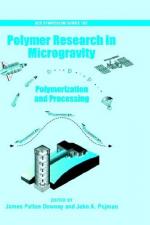|
This section contains 1,249 words (approx. 5 pages at 300 words per page) |

|
Radiation and vacuum, large variations in temperature, and lack of oxygen make it impossible for humans to survive unprotected in space. Therefore, mini-ecosystems are needed to sustain life. But would there be any benefit to living and growing old in mini-ecosystems in space? Would the elderly live longer or suffer less from ailments such as arthritis?
On Earth, the direction of gravity (G) is perpendicular to the surface, and the intensity is 1 g. The intensity of gravity on the Earth's Moon is 0.17 g and on Mars it is 0.3 g. Even 200 miles away from Earth, the forward motion of a spacecraft counterbalances Earth's gravity, resulting in continuous free-fall around the planet with a resultant acceleration of about 10-6 g or 1 micro g. This is not weightlessness but microgravity.
Astronauts orbit the Earth in about 90-minute cycles and go through 16 day/night cycles every...
|
This section contains 1,249 words (approx. 5 pages at 300 words per page) |

|


